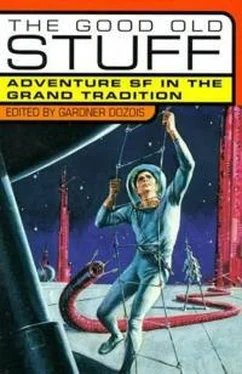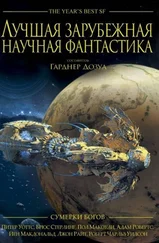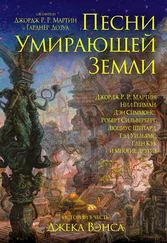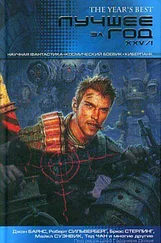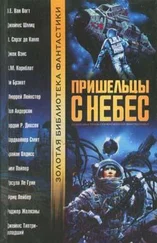Гарднер Дозуа - The Good Old Stuff
Здесь есть возможность читать онлайн «Гарднер Дозуа - The Good Old Stuff» весь текст электронной книги совершенно бесплатно (целиком полную версию без сокращений). В некоторых случаях можно слушать аудио, скачать через торрент в формате fb2 и присутствует краткое содержание. Год выпуска: 1998, ISBN: 1998, Издательство: St. Martin's Griffin, Жанр: Фантастика и фэнтези, на английском языке. Описание произведения, (предисловие) а так же отзывы посетителей доступны на портале библиотеки ЛибКат.
- Название:The Good Old Stuff
- Автор:
- Издательство:St. Martin's Griffin
- Жанр:
- Год:1998
- ISBN:0-312-19275-4
- Рейтинг книги:3 / 5. Голосов: 1
-
Избранное:Добавить в избранное
- Отзывы:
-
Ваша оценка:
- 60
- 1
- 2
- 3
- 4
- 5
The Good Old Stuff: краткое содержание, описание и аннотация
Предлагаем к чтению аннотацию, описание, краткое содержание или предисловие (зависит от того, что написал сам автор книги «The Good Old Stuff»). Если вы не нашли необходимую информацию о книге — напишите в комментариях, мы постараемся отыскать её.
The Good Old Stuff — читать онлайн бесплатно полную книгу (весь текст) целиком
Ниже представлен текст книги, разбитый по страницам. Система сохранения места последней прочитанной страницы, позволяет с удобством читать онлайн бесплатно книгу «The Good Old Stuff», без необходимости каждый раз заново искать на чём Вы остановились. Поставьте закладку, и сможете в любой момент перейти на страницу, на которой закончили чтение.
Интервал:
Закладка:
“Try to beat my way back to Bembom, I suppose. If you could lend me a Gravy and some rations .... “ Sirat shook his head, still smiling like a Cheshire-cat. “I fear that is not within the bourne of practicability. But why are you in such a hurry to get back? After the disagreement of which you apprised me, your welcome will hardly be fraternal; your colleague will have reported his narrative in a manner to place you in the worst possible light.”
“Well, what then?” said Frome, thinking that the entrepreneur must have swallowed a dictionary in his youth. He guessed that Sirat was determined not to let him go, but on the contrary might want to use him. While Frome had no intention of becoming a renegade, it wouldn’t hurt to string him along until he learned what was up.
Sirat asked: “Are you a college-trained engineer?”
Frome nodded. “University of London; Civil Engineering.”
“Can you run a machine-shop?”
“I’m not an expert machinist, but I know the elements. Are you hiring me?”
Sirat smiled. “I perceive you usually anticipate me by a couple of steps. That is, roughly, the idea I had in mind. My Dzlieri are sufficiently clever metal-workers but lack the faculty of application; moreover I find it difficult to elucidate the more complicated operations to organisms from the pre-machine era. And finally, Senhor, you arrive at an inopportune time, when I have projects under way news of which I do not desire to have broadcast. Do you comprehend?”
Frome at once guessed Sitar was violating Interplanetary Council Regulation No. 368, Section 4, Sub-section 26, Paragraph 15, which forbade imparting technical information to intelligent but backward and warlike beings like the Dzlieri without special permission. This was something Silva should know about. All he said, though, was: “I’ll see what I can do.”
“Good.” Sirat rose. “I will patch up your ear and then show you the shop myself. Accompany us, Mishinatven.”
The Siamese led the way through the maze of mat-lined passages and out.
The “palace” was connected by a breezeway with a smaller group of structures in which somebody was banging on an anvil; somebody was using a file; somebody was pumping the bellows of a simple forge.
In a big room several Dzlieri were working on metal parts with homemade tools, including a crank-operated lathe and boring-mill. In one corner rose a pile of damaged native weapons and tools. As his gaze roamed the room, Frome saw a rack holding dozens of double-barrelled guns.
Sirat handed one to Frome. “Two-centimeter smooth-bores, of the simplest design. My Dzlieri are not yet up to complicated automatic actions, to say nothing of shock-guns and paralyzers and such complex weapons. That is why the guns they expropriate from traders seldom remain long in use. They will not clean guns, nor believe that each gun requires appropriate ammunition. Therefore the guns soon get out of order and they are unable to effect repairs. But considering that we are not yet up to rifling the barrels, and that vision is limited in the jungle, one of these with eight-millimeter buckshot is quite as effective as an advanced gun.
“Now,” he continued, “I contemplate making you my shop foreman. You will first undergo a training-course by working in each department in turn for a few days. As for your loyalty—I trust to your excellent judgment not to attempt to depart from these purvieus. You shall start in the scrap-sorting department today, and when you have completed your stint, Mishi-natven will escort you to your quarters.
As my Dzlieri have not yet evolved a monetary economy, you will be recompensed in copper ingots. Lastly, I trust I shall have the gratification of your companionship for the evening repast tonight?”
The scrap-sorting room was full of piles of junk, both of human and of native origin. Idznamen, the sorter, harangued Frome on such elementary matters as how to tell brass from iron. When Frome impatiently said: “Yes, yes, I know that,” Idznamen glowered and went right on. Meanwhile Frome was working up a state of indignation. An easy-going person most of the time, he was particular about his rights, and now was in a fine fury over the detention of him, a civil servant of the mighty Viagens, by some scheming renegade.
During the lecture Frome prowled, turning over pieces of junk. He thought he recognized a motor-armature that had vanished from Bembom recently. Then there was a huge copper kettle with a hole in its bottom. Finally he found the remains of the survey-party’s equipment, including the radar-target.
Hours later, tired and dirty, he was dismissed and taken by Mishinatven to a small room in this same building. Here he found a few simple facilities for washing up. He thought he should mow the incipient yellow beard in honor of dining with God, but Mishinatven did not know what a razor was. The Dzlieri hung around, keeping Frome in sight.
Evidently Sirat was taking no chances with his new associate.
At the appointed time, Mishinatven led him to the palace and into Sirat’s dining-room, which was fixed up with considerable elegance.
Besides a couple of Dzlieri guards, two people were there already: Sirat Mongkut and a small dark girl, exquisitely formed but clad in a severely plain Earthly costume—much more clothes than human beings normally wore on this steaming planet.
Sirat said: “My dear, allow me to present Senhor Adrian Frome; Senhor, I have the ineffable pleasure of introducing Senhorita Elena Milln.
Will you partake of a drink?” he added, offering a glass of moikhada.
“Righto,” said Frome, noticing that Sirat already held one but that Miss Milln did not.
“It is contrary to her convictions,” said Sirat. “I hope to cure her of such unwarranted extremism, but it consumes time. Now narrate your recent adventures to us again.”
Frome obliged.
“What a story!” said Elena Millfin. “So that handsome North European coloring of yours was almost your death! You Northerners ought to stick to the cold planets like Ganesha. Not that I believe Junqueiros’s silly theory of the superiority of the Mediterranean race.”
“He might have a point as far as Vishnu is concerned,” said Frome. “I do notice that the climate seems harder on people like Van der Gracht and me than on natives of tropical countries like Mehtalal. But perhaps I’d better dye my hair black to discourage these chaps from trying to collect my head as a souvenir.”
“Truly I regret the incident,” said Sirat. “But perhaps it is a fortunate misfortune. Is there not an English proverb about ill winds?
Now, as you observe, I possess a skilled mechanic and another human being with whom to converse. You have no conception of the ennui of seeing nobody but extraterrestrials.”‘ Frome watched them closely. So this was the missing missionary! At least she had a friendly smile and a low sweet voice. Taking the bull by the horns he asked: “How did Miss Millfin get here?”
Elena Millfin spoke: “I was travelling with some Dzlieri into Mishi-nawen’s territory, when a monster attacked my party and ate one of them. I should have been eaten, too, had not Mr. Sirat come along and shot the beast. And now ...”
She looked at Sirat, who said with his usual smile: “And now she finds it difficult to accustom herself to the concept of becoming the foundress of a dynasty.”
“What?” said Frome.
“Oh, have I not enlightened you? I am imbued with considerable ambitions-exalted, I think, is the word I want. Nothing that need involve me with Bembom, I trust, but I hope before many years have elapsed to bring a sizable area under my sovereignty. I already rule Mishinatven’s people for all practical purposes, and within a few weeks I propose to have annexed old Kamatobden’s as well. Then for the tribe of Romeli living beyond Be-mbom ...” He referred to the other intelligent species of the planet, six—limbed ape-like beings who quarreled constantly with the Dzlieri.
Читать дальшеИнтервал:
Закладка:
Похожие книги на «The Good Old Stuff»
Представляем Вашему вниманию похожие книги на «The Good Old Stuff» списком для выбора. Мы отобрали схожую по названию и смыслу литературу в надежде предоставить читателям больше вариантов отыскать новые, интересные, ещё непрочитанные произведения.
Обсуждение, отзывы о книге «The Good Old Stuff» и просто собственные мнения читателей. Оставьте ваши комментарии, напишите, что Вы думаете о произведении, его смысле или главных героях. Укажите что конкретно понравилось, а что нет, и почему Вы так считаете.
